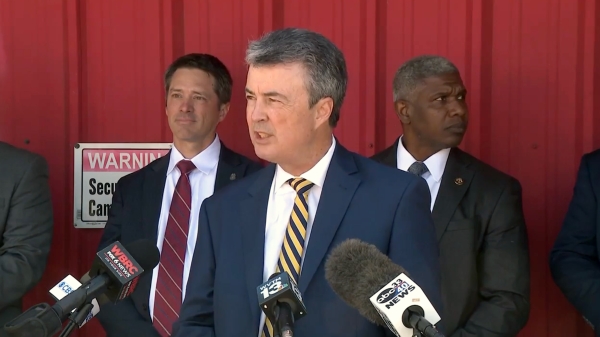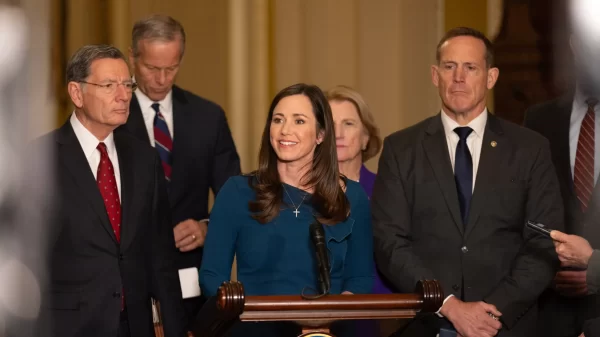By Brandon Moseley
Alabama Political Reporter
For decades, in serious cases, Alabama Courts have allowed prosecutors to trial juvenile defendants as adults. The Supreme Court eventually ruled that it was cruel and unusual punishment to execute persons for crimes committed when they were under 18 years of age. Now that has been expanded to include life sentences. On Monday, January 25, Alabama Attorney General Luther Strange (R) blasted a US Supreme Court decision to allow potentially thousands of convicted murderers across the country, currently serving life without parole, to receive new sentences because they were juveniles at the time they committed their crimes.
The Court’s decision in Montgomery v. Louisiana made retroactive a 2012 decision, Miller v. Alabama, in which it held that life-without-parole sentences cannot be mandatory for juvenile murderers. The Court’s ruling will have a devastating effect on the families of murder victims who thought they received closure in murder cases often going back decades.
AG Strange said in a statement, “Due to the US Supreme Court’s decision, murder victims’ families may be put through the ordeal of seeing the person responsible for the death of their loved one years ago being allowed to receive a new sentence.”
The conservative Alabama Attorney General said, “These are persons convicted of murder who have already exhausted all their appeals and are currently serving a sentence of life without parole. This is the latest in a series of truly irresponsible rulings by the US Supreme Court which collectively undermine the rule of law and directly attack the rights of murder victims. In Alabama alone there are at least 70 convicted murderers serving life-without-parole sentences who could be granted the chance for a new sentence and possibly parole. I will stand with murder victims and their families and work with local district attorneys to ensure that these murderers serve out their sentences.”
In August 2015, the State of Alabama joined Michigan, Arkansas, Connecticut, Indiana, Kansas, Nebraska, Montana, Nevada, New Hampshire, Rhode Island, South Carolina, South Dakota, Texas, Utah and Wyoming in filing an amicus brief in support of Louisiana in the case.
The Campaign for the Fair Sentencing of Youth released a statement celebrating the recent decision. On Monday, January 25, said that the US Supreme Court ruled today that any child sentenced to mandatory life in prison without parole is eligible for review. Further, the Court said that any child serving life without parole – except for the rare cases where it has been found that the child’s crimes reflect “permanent incorrigibility” – violates the eighth amendment ban on cruel and unusual punishment.
The Director and national coordinator at the Campaign for the Fair Sentencing of Youth Jody Kent said, “People told as children that they would leave prison only in a pine box now will have an opportunity to demonstrate that they have changed and are ready to re-enter society. All children possess the capacity for change, and this ruling affirms that when and where a youth committed a crime should not determine whether he or she should die in prison.”
The case was brought to the Court on behalf of Henry Montgomery. He is serving a mandatory life-without-parole sentence for a crime he committed at age 17. Mr. Montgomery is now 69 years old and has spent more than 50 years in prison.
Well over 1,000 people sentenced as children to die in prison for committing violent crimes will be eligible for review and potential reentry into society.
Legal director of the Campaign Heather Renwick said, “The Miller ruling was rooted in developmental research documenting that children are what the Court refers to as ‘constitutionally different’ from adults and this ruling was a logical extension of that. It makes logical sense that the Court Miller to all children, regardless of when they were sentenced.”
Pope Francis has called for an end to all life sentences.
Kent Lavy said, “National consensus is moving toward banning these extreme sentences for children, which the United States alone imposes. As legislatures throughout the country continue to consider this issue, they will be on the right side of history as they continue to ban life-without-parole for youth and ensure that all children are held accountable in ways that reflect their age, development and experiences with trauma.”





















































